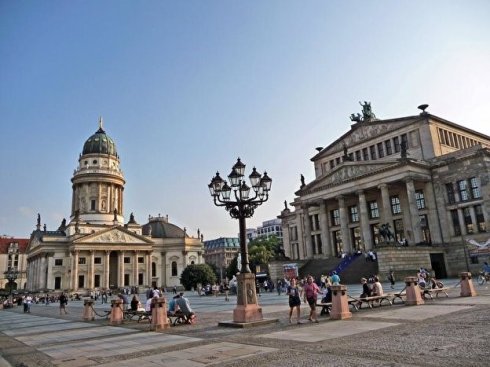Culture in times of Corona
How Berlin’s cultural world adapts to a new reality
March 25th, 2020Only a short time ago Germany’s capital was overflowing with cultural events. Berliners and tourists all gathered at the Museuminsel, where they visited the Pergamon. The Berlinale film festival was in full swing, and embassies and cultural centres all around the city were still organizing a full range of activities to do with culture.
Now we are a couple weeks further, and culture seems to be the furthest thing from people’s mind. Although Berlin is not in lockdown yet, people are recommended to stay inside as much as possible, and many cultural places have closed their doors for the public.
At the first glance, embassies seem to be partially in the foreground of the crisis. After all, they are responsible to get their countrymen home when they get stuck in Germany due to travel restrictions that can be put into place in the blink of an eye. They are also busy with enhancing – and keeping informed – about their own government’s decisions, the German government’s decisions and broader EU decisions that can impact the life of foreign citizens in Berlin.
It is not surprising then, that culture seems to be far removed from this equation. But many embassies have actually cultural centres that are responsible for promoting their culture abroad. Think, for example, about the Russisches Haus der Wissenschaft und Kultur, the Finnish cultural institute, the British Council and even the Goethe Institut.
Many of these institutions have indeed closed their actual, physical locations, but are offering alternatives online. For the interested readers, the British Council has published certain movies from an LGTBQI+ film festival on their website, making them available to the public for free. The Collegium Hungaricum Berlin has also moved many of their activities online, such as their film club and a 3d-exhibition with Hungarian music and literature easily accessible.
The Camaro house has, due to the unfortunate cancellation of the upcoming Walter Barrientos exhibition, decided that from the 27th of March onwards, visitors can look at the collection via their screens, just by visiting their website. The Tschechischen Zentrum Berlin urges those who are interested in the Czech culture to remain in touch, and has stated their intention to also move their cultural offers to the online spheres.
On the other hand, the Finnland Institut in Deutschland, Haus der Kulturen der Welt and Instituto Italiono di Cultura are closed until at least the 19th of April. The Rumänisches Kulturinstitut’s current exhibition is only open for visitors who have made an appointment in advance. The Russisches Kulturhaus der Wissenschaft und Kultur has also online access to most of their usual materials, including a digital tour through the Russian Museum in Saint Petersburg.
Real fans of culture can also check the Staatsoper Berlin, which offers multiple performances online, including live ones. And as usual, most museums offer their extensive collection online in the catalogue. It may not be exactly like the real deal, but even in times of crisis, the city of Berlin offers many different escapes into many different cultures and artforms for those who are looking.


